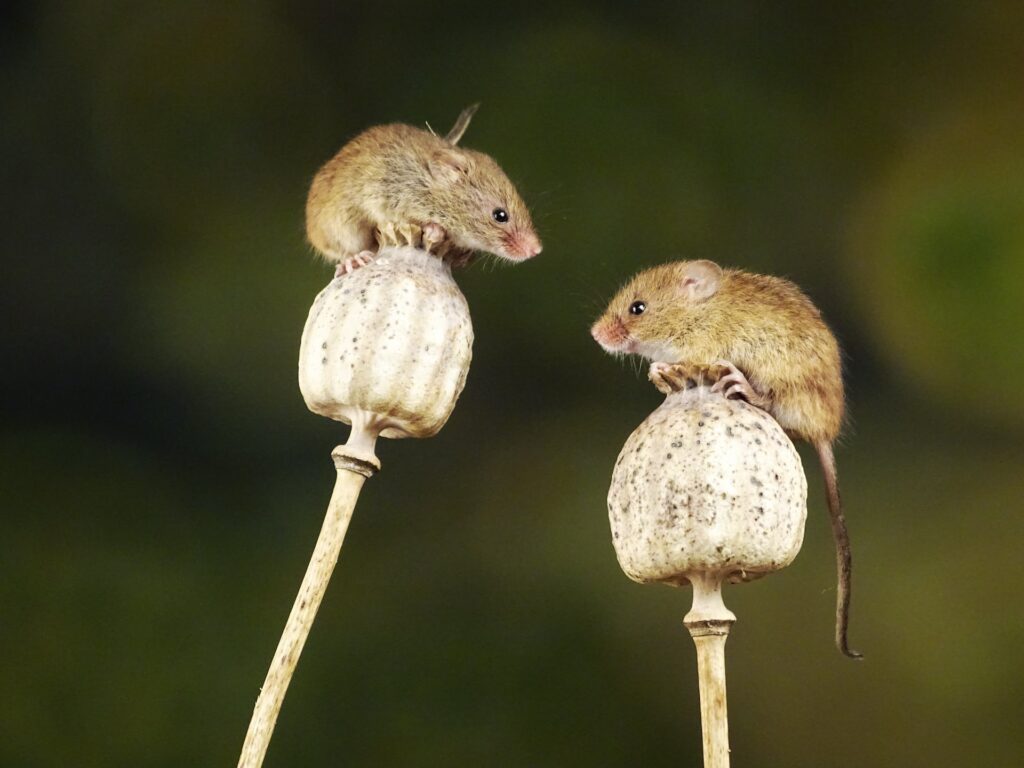Many people believe in using mothballs to keep mice away, but this method of getting rid of mice and other pests may not be as effective as commonly thought. Mothballs contain chemicals that can deter rodents in large quantities, but their use poses significant risks.
When considering mothballs repelling mice, it’s essential to understand the potential risks involved. The toxic fumes can harm blood cells, leading to conditions like hemolytic anemia. Moreover, leaving mothballs in open spaces where they can be easily accessed by children and pets is dangerous. Effective rodent repellents like mouse traps, Fresh Cab, and certain oils and plant-based alternatives not only repel rodents but do so without the severe health risks of mothballs.
Understanding Mothballs and Mice Repellent Methods
Understanding the relationship between mothballs, mice and rats is crucial when considering deterrent options. Mothballs are thought to repel mice and rodents due to their strong odor, but this is only partially true. Mothballs can act as a deterrent in large quantities, which makes them impractical for home use. Additionally, the risks associated with their chemical makeup often outweigh the potential benefits of mothballs repelling mice.
The Chemical Makeup of Mothballs
The primary chemicals found in mothballs are naphthalene and paradichlorobenzene, both of which can be harmful to mice and rats. These substances can repel mice and rodents, but their use in the home can be hazardous. Mothballs work by releasing fumes that, when inhaled in high concentrations by pests, can disrupt their ability to function and cause harm.
How Mothballs Are Commonly Used in Pest Control
To repel mice, mothballs are often placed in areas of suspected infestation. However, the question of “do mothballs safely and effectively get rid of mice?” arises often. While some homeowners use mothballs for pest control, the health risks they pose, especially to children and pets, make them a less desirable option. Mothballs can only repel mice if used in very high concentrations, which is not safe for humans.
Mothballs Repel Mice – Fact or Fiction?
While it’s a common belief that mothballs can keep rodents away, the truth is that they are not a reliable method to deter rats or mice. Their effectiveness in preventing rodent infestations is largely overstated, and safer, more effective solutions should be considered for long-term control.

Debunking Pest Control Myths
There are many myths surrounding the ability of mothballs to repel mice and keep health risks at bay. Although mothballs are a traditional pest control method, they do not safely and effectively get rid of mice. It’s important to rely on proven strategies rather than questionable remedies that could compromise the safety of your home.
The Truth Behind Ultrasonic Pest Repellers
Contrary to the claims of some products, ultrasonic pest repellers have not been conclusively proven to get rid of mice. Like mothballs, these devices are often marketed as a solution to pest problems but lack the scientific backing to support their effectiveness.
Misconceptions About Using Kitty Litter as a Deterrent
Using kitty litter as a deterrent for mice effectively capitalizes on the predator scent it may carry. However, simply placing kitty litter near entrance points is not a guaranteed method to repel mice effectively. Mice are adaptable creatures and may find ways to avoid or ignore these deterrents. Check the interesting facts about mice here.
Can Household Items Like Dryer Sheets and Irish Spring Soap Repel Mice?
Household items such as dryer sheets and Irish Spring soap are sometimes touted as effective mouse repellents. While they may offer a temporary fix, concentrated essential oils are typically needed to keep them away. For areas like the crawl space, more robust solutions are required to get rid of rodents.
Proven Strategies to Keep Mice at Bay
Instead of relying on dryer sheets, focus on strategies like maintaining airtight containers to keep them away. Scents that mice hate, combined with the presence of potential predators, can be more effective deterrents than the old wives’ tales often shared.
The Role of Natural Predators: Cats and Dogs
For those considering DIY rodent control, the presence of natural predators like cats and dogs can be an invaluable asset. These animals naturally hunt mice and can significantly reduce the likelihood of an infestation.
Effective Natural Alternatives to Mothballs
Instead of using moth balls, consider natural alternatives that repel mice without releasing toxic vapors. Items such as dog food can be kept secure, and closets protected from fabric-eating moths without the need for hazardous chemicals.
1. Essential Oils and Their Rodent Repelling Properties
Essential oils can be used in areas where mice frequent, offering a natural solution with a pleasant scent for humans. These natural alternatives are gaining popularity as a safe way to ward off unwanted rodents.
2. Fox Urine as a Wildlife Deterrent
For those battling mice and other rodents, fox urine has shown potential as an effective treatment. Its strong scent mimics that of a natural predator, providing a powerful psychological deterrent to rodents.
3. The Potency of Cayenne Pepper in Rodent Control
Cayenne pepper has been recognized for its potency in rodent control. A small amount of this pungent spice can act as a strong deterrent, making it an effective addition to a homeowner’s pest management arsenal.

Why Professional Exclusion Techniques Outperform Home Remedies
Professional exclusion techniques are more effective than home remedies for a mouse problem because they address the issue at its source. Experts are skilled in identifying and sealing entry points, utilizing materials and methods that are proven to last. Home remedies, on the other hand, may offer temporary relief but fail to provide a long-term solution.
Practical Steps for Long-Term Mouse Prevention
To prevent a mouse problem from starting or returning, homeowners should implement practical measures. These include thorough inspections for entry points, maintenance of a clean environment, and the use of deterrents. Long-term prevention requires consistent effort and, at times, professional assistance to ensure a mouse-free home.
Identifying and Sealing Entry Points: The Basics of Exclusion Work
Exclusion work begins with identifying potential entry points where mice could fit through a dime-sized hole. Once detected, these openings should be securely sealed with durable materials like wire mesh. This physical barrier is crucial in keeping mice out and is a cornerstone of professional pest control strategies.
Landscape Management: How Trimming Shrubs Helps Prevent Infestations
Proper landscape management, such as trimming shrubs, can deter mice by eliminating hiding spots and reducing the chances of attracting predators like cats. Additionally, making sure pet food is securely stored and not left outside is key to not attracting mice looking for an easy meal.
Recognizing Signs of a Mouse Infestation
Recognizing signs of a mouse infestation early can prevent larger issues. Key indicators include the presence of mouse droppings, unusual noises in walls or ceilings, and gnaw marks on food packages or furniture.
Indicators of a Mouse Nest in Your Home
If you have a mouse problem, you may notice mouse droppings or materials like shredded paper that mice use to build their nests. These signs often appear in quiet, undisturbed areas such as storage boxes or behind appliances, indicating a nest may be nearby.
Identifying Mouse Urine Stains and What They Mean
Mouse droppings are not the only sign of an infestation. Mouse urine stains, which may glow under a UV light, also indicate an active mouse problem. If you find these, it is advisable to contact control specialists who can help eliminate the issue safely.
When to Call in the Experts
When over-the-counter solutions fail and entry points continue to be a problem, it may be time to call in the experts. Pest control professionals are equipped to handle infestations effectively, ensuring that your home remains secure against future mouse intrusions.
Deciding If You Need a Professional Rodent Exterminator
Deciding to hire a professional rodent exterminator often comes down to the persistence of entry points and the severity of the mouse problem. When DIY methods fall short, professional exterminators can offer the expertise needed for complete and lasting rodent control.
What Customers Say About Professional Rodent Proofing Services
Customers who have used professional rodent proofing services often report significant relief from mouse problems. Many highlight the absence of respiratory problems that can be caused by mothball fumes, and appreciate the use of effective materials like steel wool in sealing entry points.
Conclusion: Crafting a Mouse-Free Environment
Creating a home that deters mice involves more than just dealing with the immediate problem; it requires a holistic approach that addresses areas where mice might find shelter or food. While mothballs and other home remedies might seem like a quick fix, they are not the most effective or safe methods. Instead, focus on preventative measures like sealing entry points, maintaining a clean household, and using proven repellents. Remember, while we’ve tackled mice in this discussion, these strategies are not effective against bugs such as bed bugs, which require different solutions. Ultimately, a mouse-free environment is achieved through diligence, proper preventive practices, and sometimes the help of professional exterminators.

